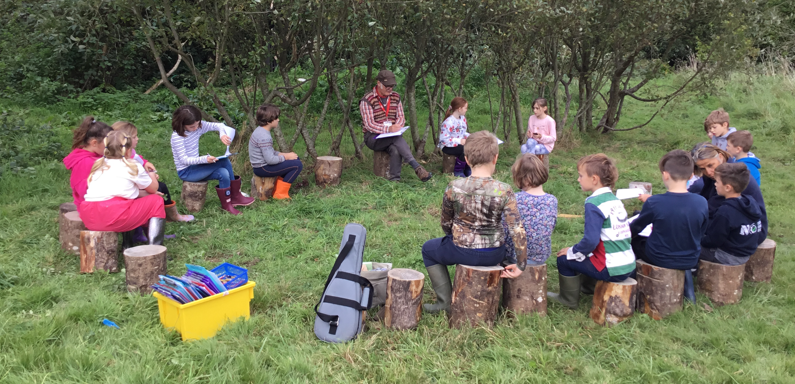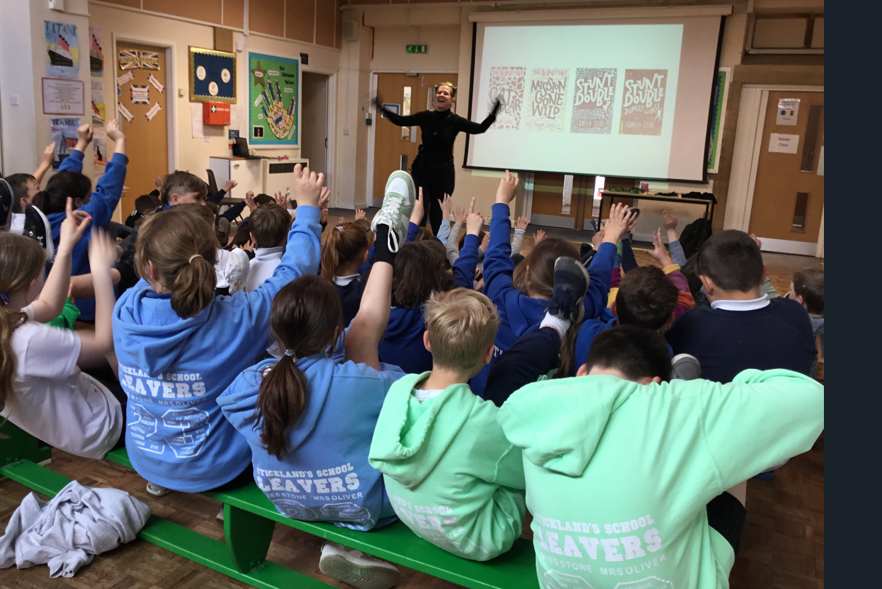Writing
Please see the bottom of the page for 'Stickland's approach to writing' and our progression documents
'Being an Author'
Curriculum Intent
At Stickland’s, we want our children to be able to write clearly, accurately and coherently. They will be skilled in their ability to plan, review and evaluate their own writing. Furthermore, it is our intention to inspire children to write for a range of purposes and acquire a good knowledge of and ability to use a range of vocabulary, grammar and writing conventions.
We aim for all children to approach their writing through the eyes of an author, loving reading and approaching writing with confidence and determination.
Implementation
- A desire to write for purpose and pleasure is fostered in the foundation stage by using role play, mark making in an engaging writing area (indoor and outdoor) and encouraging child led writing opportunities.
- RWI provides a systematic approach to developing children’s spelling skills, word and sentence awareness. Sentence structure and ordering sentences are taught progressively.
- Emile Spelling is used from Year 2 to Year 6.
- We teach writing through the use of quality texts, which exposes the children to inference, high-level vocabulary, a range of punctuation and characterisation. Each text is purposefully selected in order to promote a love of reading, engagement and high-quality writing from each child.
- KS1 and KS2 have a Long-Term Plan (LTP) which sets out the genres and grammar objectives that should be taught for each term. This LTP follows the National Curriculum. The coverage of genres considers the main purposes for writing: to entertain, to inform and in KS2 writing to persuade. Coverage has been designed to ensure that children cover a number of different genres and also gives them the opportunity to revisit those genres and build up their understanding of features.
- Handwriting is taught as part of the RWI phonics programme in EYFS and Year 1. Cursive handwriting is taught from Year 2 (after phonics) and follows the school letter formation guidance.
- Feedback is given during the writing process either verbally or in writing based on the current learning and there will be no more than 3 spelling errors highlighted in each piece of writing. Pupils are also given the opportunity to discuss their writing regularly with peers.
- Our pupils explore new genres of writing through whole class writing projects. Together, they discuss the purpose of the writing project, explore its basic features, and study mentor texts together. Whilst doing this they consider who they would like to write their pieces for and what they would like to write about most. This gives their writing authenticity and purpose.
- Pupils are taught how to use the same features and expert techniques they identified from the mentor texts in their own compositions. They learn how to attend to their spellings, handwriting, grammar and sentence construction. This helps them to write happily and fluently.
- We support students by providing them with clear and ambitious writing goals. They are given ample time and instruction in how to plan, draft, edit their work in specific revision and proof-reading sessions.
- Writing is celebrated across the school with displays of high-quality writing along with sharing successes for the children in our celebration assemblies.
- Children are given the opportunity to share their writing with the wider community through participation in book review competitions, the Bournemouth Writing Festival and collaboration events. One pupil won KS2 as online visit from Alan Macdonald (author of the Dirty Bertie series) with her fantastic review of The Tale of Despereaux by Kate Di Camillo).
- Authors are invited into school (in person or online) to share their journey to becoming an author and to inspire.
- Classroom working walls provide a scaffold to the learning intention and wider writing process.
- We are committed to school improvement work.


Impact
All pupils will enjoy writing across a range of genres in a positive and enthusiastic writing environment. They will be able to write for a range of purposes and audiences, and become confident and effective communicators, seeing themselves as writers from EYFS to Year 6.
They will amass a varied vocabulary that they can use across the curriculum and will understand how to apply spelling rules and relevant grammatical concepts in their work. We also aim to ensure that our pupils are proud of their writing, creating pieces that have meaning to them, and have the opportunity to see it on display and shared with others in the school, their families and the wider community.
Photos: Local poet & storyteller, Martin Maudsley & author, Tamsin Cooke